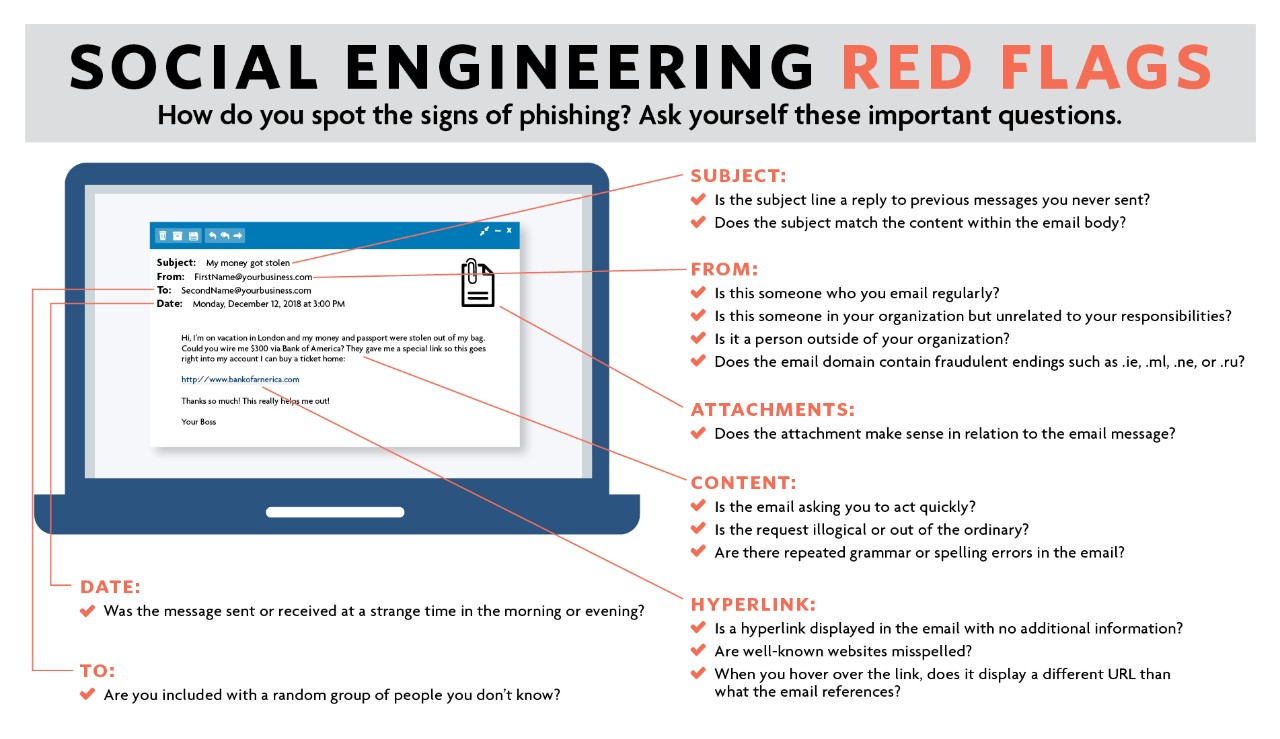Data tokens on this page
Don’t Take the Bait: Phishing Scams
Don’t Take the Bait: Phishing Scams
Phishing is when criminals attempt to lure personal and financial information, or passwords from unsuspecting individuals and businesses through emails disguised as credible sources. These emails can appear with a detailed description, or displayed as a receiving error, requiring the recipient to click on a link to view the message. They can also appear as a false invoice or confirmation of a purchasing contract that requires recipients to review an unfamiliar document. Accessing these corrupted files or links can result in a hacker getting ahold of your private information.
Here Are Some Best Practices to Keep Yourself Safe
- Be suspicious and err on the side of caution even when you receive emails from legitimate sources. Hackers will mimic or spoof credible email domains as a way of throwing off the receiver.
- Be aware of email addresses that end with foreign domains such as .ie, .ml, .ne, or .ru, and that only refer to a generic bank, office, or account. These messages may be marked as urgent and contain harmful hyperlinks that unlock additional viruses.
- If all else fails, Google! You’ll find warnings for common phishing scams reported by other people and get a sense for which emails may be unsafe.







